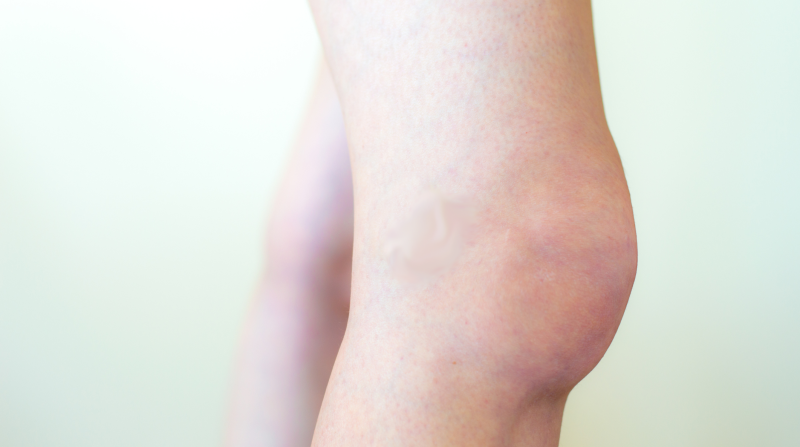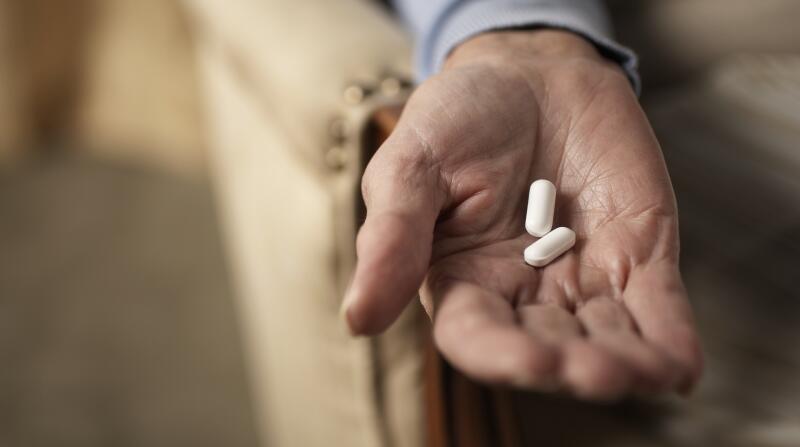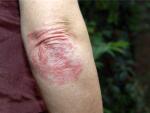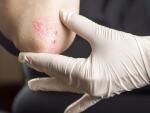7 Surprising Triggers of Psoriasis

Medically Reviewed By William C. Lloyd III, MD, FACS
Written By Erin Azuse, RN on March 26, 2021
-
 Genetics + Triggers = PsoriasisScientists have discovered there is a genetic link to the development of psoriasis. In fact, it is believed about 10% of the population has the genes for the disease. But only 2-3% of people actually develop psoriasis. What causes this discrepancy? It appears that the genetic component must be “turned on” by external triggers that can vary from individual to individual. If you have psoriasis, the better you can identify your triggers, the better you can manage your disease. Let’s take a look at some triggers that might surprise you.
Genetics + Triggers = PsoriasisScientists have discovered there is a genetic link to the development of psoriasis. In fact, it is believed about 10% of the population has the genes for the disease. But only 2-3% of people actually develop psoriasis. What causes this discrepancy? It appears that the genetic component must be “turned on” by external triggers that can vary from individual to individual. If you have psoriasis, the better you can identify your triggers, the better you can manage your disease. Let’s take a look at some triggers that might surprise you. -
 1. StressPatients have long reported a link between stressful life events and the development of psoriasis. Scientists now believe they are both related to the process of inflammation within the body, and one can exacerbate the other. This can create a vicious cycle since the disease itself often causes psychological stress for the patient. So, what can be done? Try to eliminate stress as much as possible. Get regular exercise, meditate, and allow for plenty of sleep. Talking to your doctor, a friend, or a support group can also be beneficial.
1. StressPatients have long reported a link between stressful life events and the development of psoriasis. Scientists now believe they are both related to the process of inflammation within the body, and one can exacerbate the other. This can create a vicious cycle since the disease itself often causes psychological stress for the patient. So, what can be done? Try to eliminate stress as much as possible. Get regular exercise, meditate, and allow for plenty of sleep. Talking to your doctor, a friend, or a support group can also be beneficial. -
-
 2. Skin TraumaSome patients with psoriasis experience what is known as the Koebner Phenomenon, where injury to the skin triggers the development of psoriasis in that area. This includes cuts and bruises, as well as things like bug bites, sunburn, and tattoos. Even more subtle damage to the skin such as shaving or scratching can lead to psoriasis plaques for some individuals. To avoid this, be careful with your skin. Keep it covered when appropriate. Be cautious while shaving. Don’t pick at scabs. Notify your doctor if you notice any signs or symptoms of skin infection.
2. Skin TraumaSome patients with psoriasis experience what is known as the Koebner Phenomenon, where injury to the skin triggers the development of psoriasis in that area. This includes cuts and bruises, as well as things like bug bites, sunburn, and tattoos. Even more subtle damage to the skin such as shaving or scratching can lead to psoriasis plaques for some individuals. To avoid this, be careful with your skin. Keep it covered when appropriate. Be cautious while shaving. Don’t pick at scabs. Notify your doctor if you notice any signs or symptoms of skin infection. -
 3. InfectionPsoriasis is an autoimmune disorder. Other things that affect the immune system, such as infection, can cause a psoriasis flare. Guttate psoriasis, the second most common type of psoriasis, is often triggered by the streptococcus bacteria, the kind that causes strep throat. Rather than scaly plaques, guttate psoriasis appears as small, red dots often covering the trunk, arms, or legs. It’s a good idea to be checked for a strep infection if you develop this type of psoriasis.
3. InfectionPsoriasis is an autoimmune disorder. Other things that affect the immune system, such as infection, can cause a psoriasis flare. Guttate psoriasis, the second most common type of psoriasis, is often triggered by the streptococcus bacteria, the kind that causes strep throat. Rather than scaly plaques, guttate psoriasis appears as small, red dots often covering the trunk, arms, or legs. It’s a good idea to be checked for a strep infection if you develop this type of psoriasis. -
 4. AlcoholHigh levels of alcohol consumption have been linked to the development and worsening of psoriasis. Alcohol can have a negative effect on the immune system, as well as organs such as the heart, liver, and intestines. The combined effect of this can result in the manifestation of skin disease, such as psoriasis. Additionally, studies have shown alcohol abuse is associated with poorer response to psoriasis treatment. If you are diagnosed with psoriasis, it might be a good idea to limit or stop drinking. Talk to your doctor if you think you need help controlling your alcohol intake.
4. AlcoholHigh levels of alcohol consumption have been linked to the development and worsening of psoriasis. Alcohol can have a negative effect on the immune system, as well as organs such as the heart, liver, and intestines. The combined effect of this can result in the manifestation of skin disease, such as psoriasis. Additionally, studies have shown alcohol abuse is associated with poorer response to psoriasis treatment. If you are diagnosed with psoriasis, it might be a good idea to limit or stop drinking. Talk to your doctor if you think you need help controlling your alcohol intake. -
 5. SmokingEveryone knows by now that smoking is bad for your health. And if you do smoke, here is one more reason why you should quit- smoking doubles your risk of developing psoriasis. The chemicals in cigarettes may affect the immune system and skin inflammation. If you are hoping to clear yourself of psoriasis lesions, don’t smoke. One study showed that 78% of individuals who experienced a remission from psoriasis were non-smokers, as opposed to 22% of smokers.
5. SmokingEveryone knows by now that smoking is bad for your health. And if you do smoke, here is one more reason why you should quit- smoking doubles your risk of developing psoriasis. The chemicals in cigarettes may affect the immune system and skin inflammation. If you are hoping to clear yourself of psoriasis lesions, don’t smoke. One study showed that 78% of individuals who experienced a remission from psoriasis were non-smokers, as opposed to 22% of smokers. -
-
 6. WeatherMany patients experience psoriasis flares during the fall and winter months. This is often due to the cold and dry air, as well as the decreased exposure to sunlight that can help alleviate symptoms. Keep in mind, though, any temperature extreme can trigger psoriasis. Psoriasis can act up even in the summer as the result of very hot conditions, too much time in the sun, or spending a lot of time in dry, air-conditioned buildings. During these times, keep your skin covered and protected from the elements. Always use sunscreen. Moisturize your skin well and avoid long, hot showers. Make sure to drink plenty of fluids to keep your skin hydrated. Consider using a humidifier at home as well.
6. WeatherMany patients experience psoriasis flares during the fall and winter months. This is often due to the cold and dry air, as well as the decreased exposure to sunlight that can help alleviate symptoms. Keep in mind, though, any temperature extreme can trigger psoriasis. Psoriasis can act up even in the summer as the result of very hot conditions, too much time in the sun, or spending a lot of time in dry, air-conditioned buildings. During these times, keep your skin covered and protected from the elements. Always use sunscreen. Moisturize your skin well and avoid long, hot showers. Make sure to drink plenty of fluids to keep your skin hydrated. Consider using a humidifier at home as well. -
 7. MedicationsCertain medications can trigger the development of psoriasis or exacerbate a current case. Some of these include: Lithium, which is often used for manic depressive disorder; beta blockers such as propranolol , which are used to treat high blood pressure; antimalarials, used to prevent and treat malaria; and nonsteroidal anti-inflammatory drugs (NSAIDS) such as naproxen and indomethacin. It is always a good idea to let your doctor know what medication you are currently taking or have a discussion prior to starting a new one. There are often other alternatives available if a particular medication affects your psoriasis.
7. MedicationsCertain medications can trigger the development of psoriasis or exacerbate a current case. Some of these include: Lithium, which is often used for manic depressive disorder; beta blockers such as propranolol , which are used to treat high blood pressure; antimalarials, used to prevent and treat malaria; and nonsteroidal anti-inflammatory drugs (NSAIDS) such as naproxen and indomethacin. It is always a good idea to let your doctor know what medication you are currently taking or have a discussion prior to starting a new one. There are often other alternatives available if a particular medication affects your psoriasis.
7 Surprising Triggers of Psoriasis





































